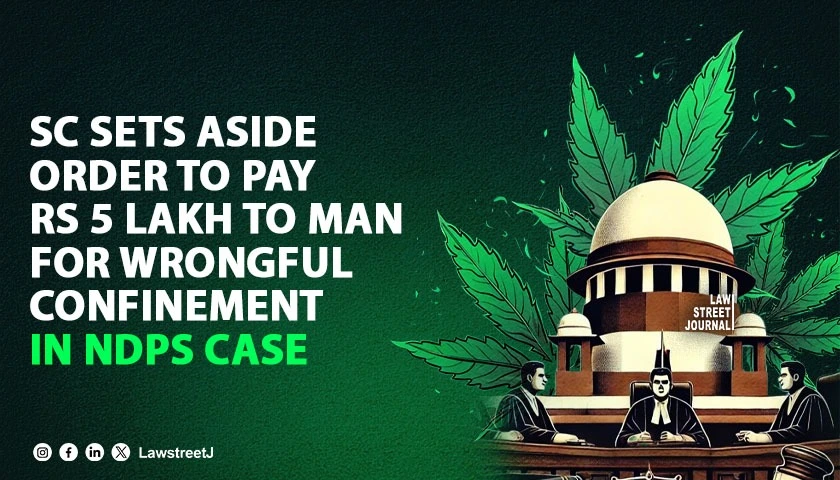NEW DELHI: The Supreme Court has said bail jurisdiction under Section 439 of the Criminal Procedure Code can't be used by the High Court to grant compensation to a man for wrongful confinement.
A bench of Justices Sanjay Karol and Manmohan emphasised that this court has time and again held that the sphere of consideration, when exercising power under this Section pertains only to securing or restricting liberty of the person in question.
The apex court set aside the Allahabad High Court's May 22, 2024 order, which told the Director, Narcotics Control Bureau to pay Rs 5,00,000 to a young person who had been wrongfully confined for four months despite the initial laboratory findings, stating the sample of seized material was negative of any banned substance under the NDPS Act.
"The undue restriction of liberty, i.e., without the backing of procedures established by law is unquestionably an affront to a person’s rights but the avenues to seek recourse of law in connection therewith are limited to remedies as per law," the bench said.
The court said grant of compensation is permissible but it has done so in the context of violation of fundamental rights. However, here no such remedy was availed, it said.
Respondent Man Singh Verma was arrested upon seizure of 1280 grams of brown powder, alleged to be heroin, leading to registration of an FIR on January 6, 2023.
In the case, the court said, even the second laboratory test also found that there was no banned substance in the seized material. The district court Barabanki, which initially denied him bail, ordered his release on April 10, 2023 upon filing of the closure report by the NCB.
In its arguments, the Union government said even though the accused was released from jail, the High Court went on to examine the matter and ordered the compensation, going beyond its jurisdiction. It also said the NCB officers were protected under Section 69 of the NDPS Act for the acts done in good faith.
Also Read: Gauhati High Court grants bail to accused in NDPS case due to prolonged incarceration [Read Order]
Amicus Curiae, however, said re-testing of the second sample was impermissible and illegal and it led to an unjustified extension of the respondent’s custody. He said compensatory relief allowed for violation of fundamental rights should be extended to the bail jurisdiction.
After considering the matter, the bench, in its judgment on February 28, 2025, said, "Time and again, the act of courts overstepping the bounds of jurisdiction, has clearly been frowned upon. The instant case is another such example."
The court also found the application for bail filed before the High Court became infructuous after release of the respondent by the district court.
"The straightforward course of action that ought to have been adopted, was that the bail application would have been dismissed as such," the bench said.
Also Read: Filing of chargesheet not a ground for bail in NDPS cases: Tripura High Court [Read Order]
It said no occasion arose for the court to pass an order delving into the aspects of impermissibility of retesting the sample or wrongful confinement.
"Not only was the same outside the bounds, but it is erroneous on a further count that since the application was infructuous, the exercise of jurisdiction was entirely unjustified and contrary to law," the bench said.
The bench also pointed out, "It is a settled principle of law that the jurisdiction conferred upon a court under Section 439 CrPC is limited to grant or refusal of bail pending trial."















